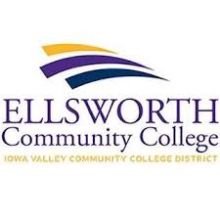Ellsworth Community College


Selected Programs at Ellsworth Community College
Explore programs at Ellsworth Community College. This list is curated by SkillPointe to match skills-based industries and careers that don't require a four-year degree.
Browse Training Programs (12)
Construction Equipment Operator
Mobile Service technician, A.A.S
The Mobile Service Technician program prepares students to diagnose, repair and service agricultural equipment in rural locations using a specially...
View Program
Certified Nursing Assistant
Advanced Nurse Aide Certificate
This 75-hour course emphasizes the knowledge, attitude and skills for a nurse aide to provide patient care in the acute care setting. Skills include...
View Program
Nurse Aide Certificate
The Nurse Aide Phase I (75-Hour) course involves a minimum of 75 hours of training: 30 hours classroom instruction, 15 hours lab training, and 30...
View Program
Medical Assistant
Medical Assistant Diploma
Medical Assistants give healthcare a human touch, helping patients to feel at ease in the doctor’s office and to understand the doctor’s instructions...
View Program
Medication Aide Certificate
This 12-hour course prepares you to safely administer or supervise self-administration of non-parenteral medications in a 15 bed or less residential...
View Program
Medical Records and Health Information Technician
Medical Office Practitioner Diploma
WHAT TO EXPECT
Perform medical administrative duties, including preparing medical charts, reports and correspondence; diagnostic and procedural...
View Program
Nurse - LPN / LVN
Practical Nursing Diploma
Practical Nursing students must complete clinical rotations while in the program. The total number of clinical hours required for the entire Practical...
View Program
Systems Analyst
Computer Application in Business, A.A.S
Whether you’re a new student, a working professional or rejoining the workforce, if you’d like to enhance your qualifications for success in the...
View Program
EMTs and Paramedics
Advanced Emergency Medical Technician Certificate
The primary focus of the Advanced Emergency Medical Technician is to provide basic and limited advanced emergency medical care and transportation for...
View Program
Emergency Medical Responder Certitifcate
The primary focus of the Emergency Medical Responder is to initiate immediate lifesaving care to critical patients who access the emergency medical...
View Program
Emergency Medical Technician Certifcate
The primary focus of the Emergency Medical Technician is to provide basic emergency medical care and transportation for critical and emergent patients...
View Program
Police Officer
Criminal Justice, A.A.S
ECC STUDENTS RECEIVE A HANDS-ON CRIMINAL JUSTICE EDUCATION:
Participate in field trips to Criminal Justice facilities including local, county and...
View Program
Address
1100 College Ave
Iowa Falls, IA 50126
Iowa Falls, IA 50126
Phone number
800-322-9235